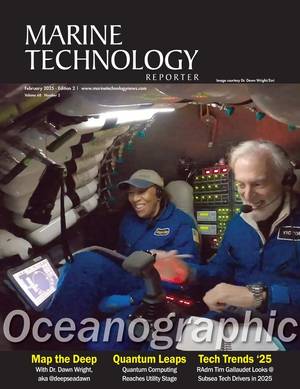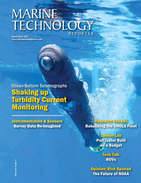
Bacteria Fuel Cell Could Power Ocean Sensors
project will run through Summer 2026 and includes collaborators from eight other institutions and firms: Battelle, the George Washington University, Harvard University, the Institute of Marine and Environmental Technology at the University of Maryland, Baltimore County, James Madison University, Johns Hopkins University, the University of Delaware and Yokogawa Corp. of America.In addition to the $7.8 million granted for Phase 1 development and deployment, an additional $3.4 million award is possible to support Phase 2, which will include deployment in multiple settings and generate 100 watts of power

Schmidt Sciences Fosters AI Research
, assistant professor at Cornell University● Tim Dettmers, assistant professor at Carnegie Mellon University● Simon Du, assistant professor at the University of Washington● Gabriele Farina, assistant professor at the Massachusetts Institute of Technology● Anjalie Field, assistant professor at Johns Hopkins University● Marzyeh Ghassemi, associate professor at the Massachusetts Institute of Technology● Yoon Kim, assistant professor at the Massachusetts Institute of Technology● Pang Wei Koh, assistant professor at the University of Washington● Aviral Kumar, assistant professor at Carnegie Mellon University●

Fugro Names Annabelle Vos Director for Middle East & India
for 11 years at De Brauw Blackstone Westbroek, a tier-one law firm in the Netherlands, in their M&A and corporate litigation practice groups. Vos holds a Master of Law degree from Leiden University and a Master of Arts degree in International Relations and International Economics from Johns Hopkins University SAIS. She is a member of the Supervisory Board of SIF Group N.V.Mark Heine, CEO of Fugro, said, “Annabelle has been instrumental in driving Fugro’s growth and success, all while being a strong promoter of company values and showcasing great personal leadership. Her extensive
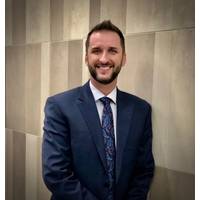
MTS Names Ostrander Executive Director
advisor to state, territorial, and federal agencies, including as a founding member of the U.S. Integrated Ocean Observing System (IOOS) Advisory Committee. Chris received his undergraduate and graduate education from the United States Military Academy at West Point (geography), the Johns Hopkins University (political theory), and the University of Hawaii (physical oceanography).“MTS and its members are recognized as global leaders in the development and use of marine technology to support applied research, public policy development, and the blue economy. I look forward to joining our
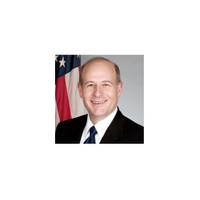
Richard W. Spinrad Confirmed to Lead NOAA
scientific articles, papers, book chapters and opinion pieces, Spinrad has also held professorships in academia and industry executive positions focusing on the ocean and environment.Spinrad, 67, a native of New York City, earned a bachelor’s degree in earth and planetary sciences from the Johns Hopkins University, and earned a masters and a doctorate in oceanography from Oregon State University
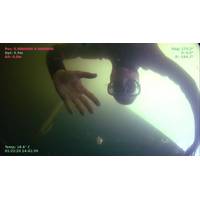
Greensea Expands, Again
to get him to work for us at Greensea for years and finally, with the opening of our Plymouth office and the new hull robotics program, the timing was right. We’re thrilled to have him on our team and excited to build more robots with him.”James has a master’s degree from Johns Hopkins University in mechanical engineering with a focus on robotics and controls, and over eighteen years of submersible robotics experience, most recently in his role as Chief Engineer for Teledyne Webb Research. Partnering with James on the hull robotics team is Sam Fladung. Sam has over a decade
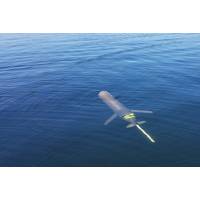
Exocetus Delivers Glider to Johns Hopkins APL
Connecticut-based Exocetus Autonomous Systems said it has delivered its first MOD2 Glider to Johns Hopkins University Applied Physics Laboratory (APL). The vehicle was purchased as part of an internal research and development project which intends to explore a diverse set of applications for the vehicle.“Johns Hopkins APL was looking for a vehicle that could provide endurance and easy modification, and the MOD2 Glider was the only vehicle out there that provided those capabilities,” said Joe Turner, Exocetus COO & General Manager. The delivery took place at the end of July
Wynne Named President and CEO of AUVSI
role at the Intelligent Transportation Society of America (ITSA) and was CEO of the Association for Automatic Identification and Mobility (AIM). He holds a bachelor’s degree from the University of Scranton, a master’s degree from the School of Advanced International Studies at Johns Hopkins University, and was a Fulbright Scholar at the University of Cologne in Germany. Michael Toscano has headed AUVSI since 2008, following a distinguished career of more than 30 years in the Department of Defense.
Standard Missile Shows Versatility with “Juliet” Flight Test
(FOT&E) events planned for SM-6's missile performance and demonstration. "This event demonstrated SM-6's ability to detect and engage a slow moving target in the presence of complex land clutter," said Jim Schuh, Anti-Air Warfare Missiles technical director at the Johns Hopkins University Applied Physics Lab, which is among the Navy's SM-6 partners. "It is another victory for this very versatile weapon." The SM-6 provides an over-the-horizon engagement capability when launched from an Aegis warship. It uses the latest in hardware and software missile technology


 February 2025
February 2025
